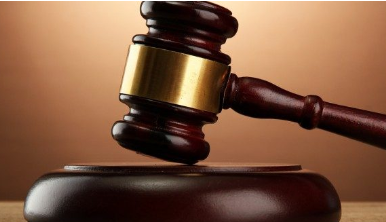The sentencing of prominent #MeToo activist Sophia Huang Xueqin to five years in prison for “subversion against the state” has sparked widespread concern and condemnation.
Alongside her, labor activist Wang Jianbing received a three-year and six-month prison sentence. Huang, 36, had been a leading figure in China’s #MeToo movement, bravely reporting on cases of sexual abuse and advocating for victims’ rights.
She also highlighted the pervasive misogyny and sexism present in Chinese newsrooms.
The exact charges of subversion against the state remain unclear, as the trial was held behind closed doors, leaving supporters puzzled about the accusations. Many believe that Huang and Wang were targeted for their efforts to organize meetings and forums where young people could openly discuss social issues, which authorities perceived as a threat to their control.
Huang’s detention occurred as she was about to embark on a UK-government sponsored masters scholarship at the University of Sussex in 2021. Both she and Wang endured months of solitary confinement during their nearly 1,000-day pre-detention custody, which began in secret locations known as ‘black jails.’
Their trial, which only commenced in September 2023, has been met with criticism for its lack of transparency and fairness.
The harsh sentencing of Huang and Wang underscores the Chinese government’s crackdown on dissenting voices and civil society activism.
It has prompted renewed calls from human rights organizations and international observers for their immediate release and for China to uphold its obligations to protect freedom of expression and human rights.
The crackdown on activists in China, including those advocating for labor rights, women’s rights, and civil society, intensified in 2021 amid Covid lockdowns and rising public discontent.
The recent sentencing of Huang Xueqin and Wang Jianbing has sparked outrage and condemnation from various quarters.
Supporters of the activists, represented by groups like Free Huang Xueqin and Wang Jianbing, have emphasized that their contributions to society will not be forgotten, and their unjust trial will only fuel further activism against oppression and injustice.
Amnesty International has denounced the convictions as malicious and groundless, highlighting the Chinese government’s fear of emerging activists who dare to speak out for the rights of others.
The organization emphasized that the crackdown on #MeToo activism runs counter to global efforts to empower survivors of sexual violence.
The fate of Huang and Wang remains uncertain, as it is unclear whether the time they have already served will be counted towards their sentences. The trial has elicited mixed reactions online, with some condemning the case while others critical of the feminist movement welcomed it.
Many activists advocating for gender rights and social causes in China choose to remain anonymous online due to the risk of being labeled as “agents of hostile western forces” by state media and nationalist internet users.
Despite the challenges, the pursuit of social justice and human rights continues to resonate among a growing number of individuals in China.


